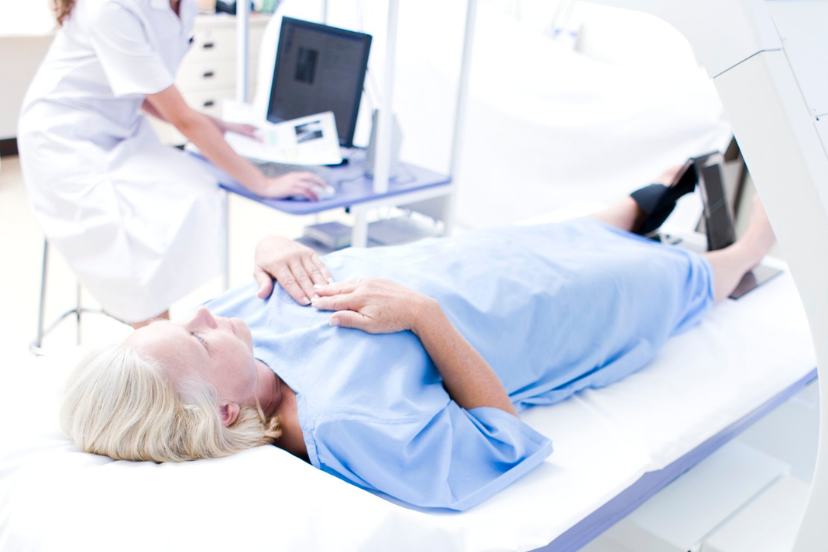Bone Density Testing: Your Guide to Stronger Bones
Introduction
Welcome to our comprehensive guide on bone density testing! If you’ve ever wondered about the health of your bones or if you’re concerned about osteoporosis, you’re in the right place. In this article, we’ll dive deep into everything you need to know about the testing, from what it is to why it’s important and how it’s done. So, grab a cup of tea, get comfortable, and let’s strengthen your knowledge about your bones!
What is Bone Density Testing?
Bone density testing is a medical procedure used to measure the strength and density of your bones. It’s a crucial tool for diagnosing osteoporosis and assessing the risk of fractures. By measuring the amount of bone mineral content in specific areas of your body, typically the hip, spine, or wrist, doctors can determine if your bones are healthy or if they’ve become weak and porous.
Why is the testing Important?
Maintaining strong and healthy bones is vital for overall health and mobility. Bone density testing helps identify individuals at risk of osteoporosis, a condition characterized by low bone density and increased risk of fractures. Early detection through the testing allows for proactive measures to prevent fractures and maintain bone health.
Who Should Consider Bone Density Testing?
If you’re a woman aged 65 or older, or a man aged 70 or older, bone density testing is typically recommended as part of routine preventive care. However, certain factors may warrant testing at a younger age. These include:
- Family history of osteoporosis
- History of fractures
- Long-term use of medications that affect bone density, such as corticosteroids
- Chronic conditions like rheumatoid arthritis or hyperthyroidism
How is the Testing Done?
There are several methods for bone density testing, with Dual-energy X-ray Absorptiometry (DEXA or DXA) being the most common. During a DEXA scan, you’ll lie comfortably on a table as a machine scans your bones, usually focusing on the hip and spine. The process is quick, painless, and emits minimal radiation.
The Preparation
Before your bone density test, there are a few things to keep in mind to ensure accurate results:
- Wear loose, comfortable clothing, avoiding garments with metal zippers or buttons.
- Inform your doctor if you’ve had recent imaging tests involving contrast dye or radiation therapy.
- Avoid taking calcium supplements on the day of the test, as they can interfere with the results.
Interpreting Bone Density Test Results
Once your bone density test is complete, your doctor will analyze the results to assess your bone health. The measurements are compared to the bone density of a healthy young adult of the same gender, known as a T-score.
- A T-score between +1 and -1 is considered normal.
- A T-score between -1 and -2.5 indicates osteopenia, or low bone density.
- A T-score of -2.5 or lower indicates osteoporosis.
FAQs
1. What can I expect during a bone density test? During a bone density test, you’ll lie on a table while a scanner passes over your body, measuring bone density in specific areas.
2. Does a the test hurt? No, bone density testing is painless and non-invasive.
3. How often should I have a test? The frequency of bone density testing depends on your individual risk factors and your doctor’s recommendations. Generally, testing may be repeated every 1-2 years.
4. Can men benefit from bone density testing? Yes, while osteoporosis is more common in women, men can also develop the condition and benefit from the testing, especially if they have risk factors.
5. Are there any risks associated with the test? DEXA scans emit minimal radiation, so the risks are very low. However, inform your doctor if you’re pregnant or may be pregnant.
6. Can I do anything to improve my bone density test results? Yes, adopting a healthy lifestyle that includes regular weight-bearing exercise, adequate calcium and vitamin D intake, and avoiding smoking and excessive alcohol consumption can help improve bone density.
Conclusion
In conclusion, bone density testing is a valuable tool for assessing bone health and identifying individuals at risk of osteoporosis. By detecting bone loss early, steps can be taken to prevent fractures and maintain strong, healthy bones. If you’re concerned about your bone health or have risk factors for osteoporosis, talk to your doctor about whether bone density testing is right for you. Remember, it’s never too early to start taking care of your bones!




